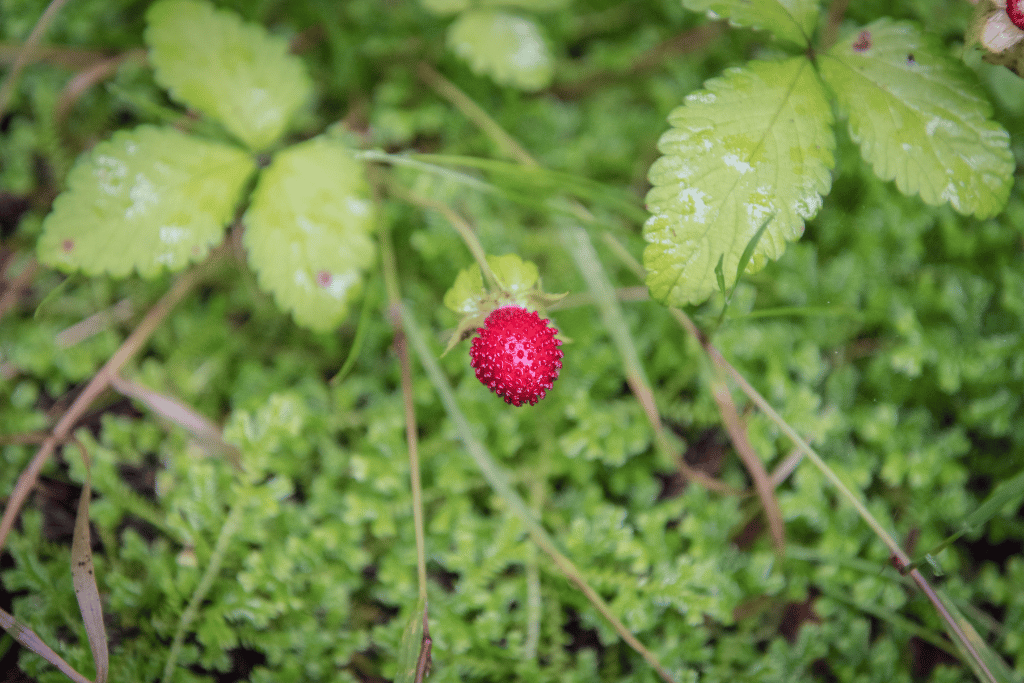When it comes to collecting and foraging for wild berries, it can be a bit tricky to determine which ones are safe to eat and which ones are poisonous. Snake berries, which are also known as coral berries, are an example of a wild berry that many people aren’t too sure about. So – are snake berries poisonous? Let’s take a closer look.

What Are Snake Berries?
Snake berries are a type of small, bright red or orange berry that can grow on vines and shrubs in North America. They are also known as coral berries due to their bright red color and clustered appearance, which resembles coral. Snake berries can most commonly be found in woodlands, along the edges of fields and roads, and forests.
The Scientific Name of Snake Berries
The scientific name for snake berries is Symphoricarpos orbiculatus – a member of the honeysuckle family, which also includes other types of edible berries such as blueberries and cranberries.
Are Snake Berries Poisonous?
So, the answer to this question is both a yes and no. Snake berries aren’t toxic to humans and aren’t known to cause any severe health problems when consumed in small amounts, but they aren’t particularly tasty or palatable, and some people may experience mild digestive discomfort after eating them.
It’s important to note that even though snake berries aren’t poisonous to humans, they can be toxic to some animals, so make sure that you keep any pets out of range of them. In particular, the berries contain a compound which is called saponin, which is toxic to livestock and can cause diarrhea, stomach upset, and even death in some cases.
How To Identify A Snake Berry

If you’re planning to forage for some wild berries, it’s crucial to be able to identify different types of berries – especially snake berries, so that you don’t accidentally ingest a toxic lookalike. Snake berries are small and round in shape, with a bright red or orange color. They grow in clusters on a shrub or vine, and they are typically hidden among the leaves.
Snake berries aren’t the only bright red or orange berries that grow in the wild, though, so it’s important to be able to distinguish them from similar-looking berries that may be toxic. For example, some toxic berries that look similar to snake berries include pokeweed, bittersweet nightshade and some species of honeysuckle.
To identify snake berries, you should look for the following characteristics:
- Small size: Snake berries are typically no more than half an inch in diameter.
- Clustered appearance: The berries will grow in clusters on a shrub or vine, making them easily identifiable.
- Bright color: Snake berries are a bright red or orange color when ripe.
- Lack of shine: Snake berries don’t really shine – they have a matte finish, while some other toxic berries may appear shiny.
- Woody stems: The stems of the shrub or vine that produce snake berries are woody, and they usually have thorns.
What To Do If You Ingest Snake Berries
If you accidentally ingest snake berries, don’t panic. As previously mentioned above, snake berries aren’t poisonous to humans, and they’re unlikely to cause any serious health problems. The most you’ll likely experience is mild digestive comfort, such as nausea, stomach cramps or diarrhea.
If you or someone you know has ingested a large number of snake berries, or if you experience severe symptoms such as swelling or difficulty breathing, then you need to seek medical attention immediately. This also applies to any livestock or pets you keep.
Final Thoughts
Overall, snake berries aren’t poisonous to humans – but they’re not really particularly palatable or tasty either, so why eat them? While it’s generally safe to eat just a few of these berries, it’s important to be able to identify them and distinguish them from toxic lookalikes. If you plan to forage for wild berries, it’s always best to err on the side of caution and research any berries you’re not sure about, making sure that you are consuming only safe and edible plants. One wrong bite could lead to severe health problems, so make sure you do your research thoroughly beforehand.



